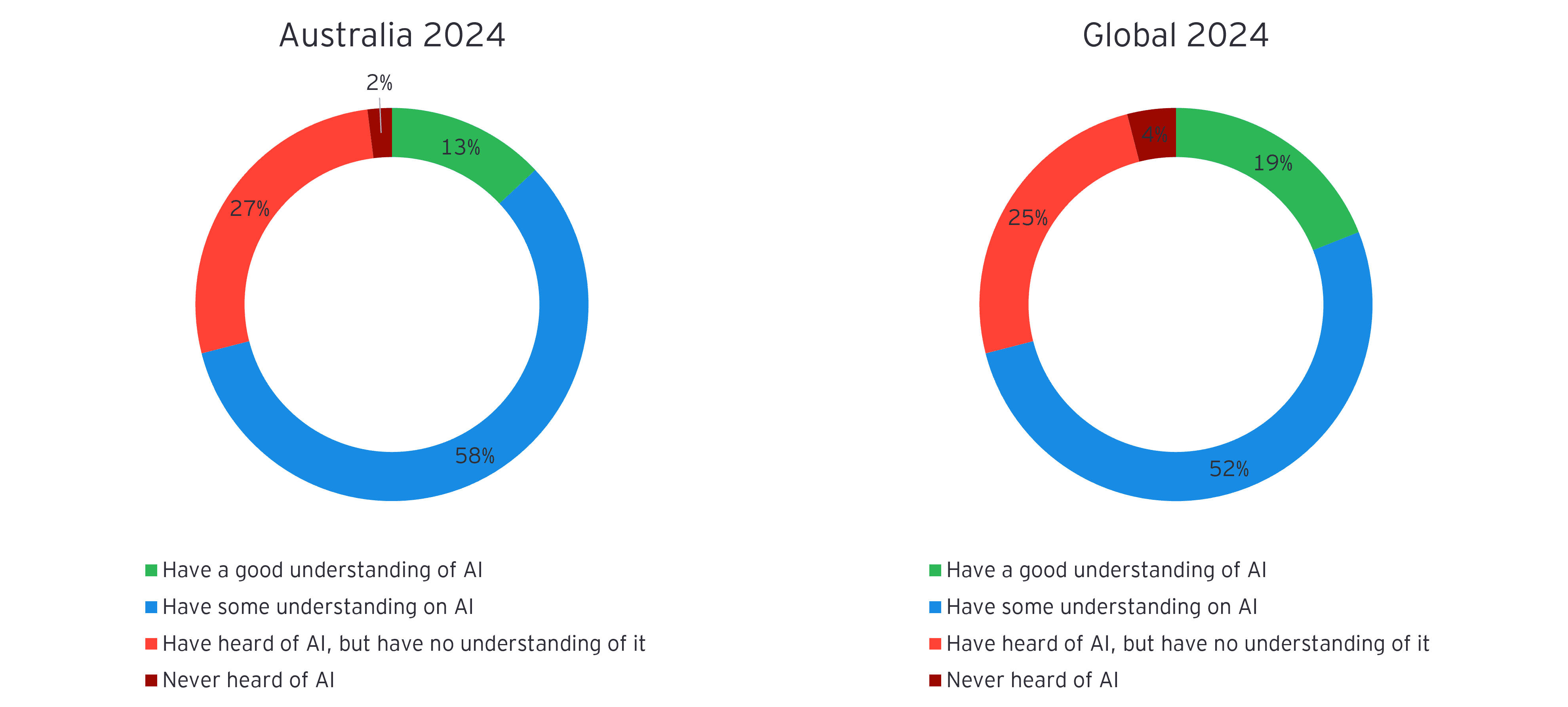EY refers to the global organisation, and may refer to one or more, of the member firms of Ernst & Young Global Limited, each of which is a separate legal entity. Ernst & Young Global Limited, a UK company limited by guarantee, does not provide services to clients.
How EY can help
-
Our Consulting approach to the adoption of AI and intelligent automation is human-centered, pragmatic, outcomes-focused and ethical.
Read more
Redefining user experience and addressing privacy and trust concerns
This great AI device race is a leap forward in AI integration into devices we already trust, like our laptops and mobile phones. It will not only redefine the user experience of these devices but also promises to amplify productivity across all sectors, aiding Australians in tasks ranging from the mundane to the highly creative.
However, this technological leap does not come without its challenges. Privacy and data security remain paramount, particularly for a company like Apple, which prides itself on user privacy. The integration of sophisticated AI into everyday devices necessitates a robust conversation around the safeguarding of personal information.
As we navigate the AI device race, it is imperative to address the trust deficit surrounding these technologies with appropriate customer-informed AI consent, supported by the relevant law and regulations to ensure consequences to those that breach this trust. Transparency, accountability, compliance, and the ethical use of AI are the cornerstones of building public trust and fostering responsible implementation.





